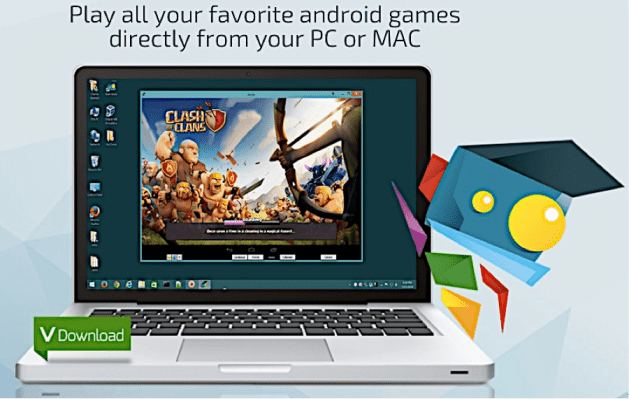500 Startups’ mobile-focused micro-fund has made its first investment, putting some cash into a startup that plans to bring mobile apps to the desktop. The company’s investment is in Andy OS, an Android-based operating system that runs mobile apps on Windows and Mac, as well as in the cloud.
Andy OS enables users to access their favorite Android apps and content from the Google Play store on new platforms. It brings those apps to the billions of personal computers that are already out there, and gives developers a new way to reach users.
The cloud-based operating system offers all the same features you would expect, including a customizable UI and desktop notifications. It also allows users to use their phones as a remote control for games that run on their desktop.
According to co-founder and CEO Sean Murphy, Andy OS was built to bring a sort of continuity between apps that users can access on their mobile phones and those that are on the desktop. While Apple has its own “continuity” between iPhone and Mac products, nothing like that exists between Android and Windows, or even Android and Mac.
That’s an idea that’s caught on among early users: The product has been around for fewer than nine months, but has already amassed more than 3 million users worldwide. About 60 percent of those are active daily, and they spend an average of 23 minutes on Andy OS each day.
But beyond just enabling users to access accounts from mobile apps on the desktop, the operating system also presents an opportunity for developers to quickly and easily port over their existing mobile apps to desktop. They could also develop desktop apps that are based on the Android operating system.
Its growth attracted the attention of Edith Yeung and the 500 Mobile Collective, which invested in the company as part of a $3 million round. Other investors include DeNA, China Rock Ventures, Weiming Angels, Cherubic Ventures and SEA Ventures.
Yeung said Andy OS’s early growth reminded her of Dolphin Browser, where she ran marketing and business development. She compared what the company is doing to virtualization in the enterprise space, which has existed for decades.
“The concept is new for the consumer mobile space, but not new for the enterprise,” Yeung said.
The company hopes to use the virtualization concept and make a business out of it. For now, the company is focused on building its business model around app installs and licensing its platform to Android developers.
